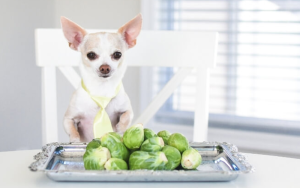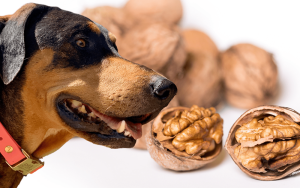Can Dogs Eat Potatoes? The Ultimate Guide to Safe and Healthy Feeding for Your Pup

When it comes to feeding your dog, it’s important to be cautious about what foods you give them. As pet owners, we often wonder whether certain human foods, like potatoes, are safe for our dogs to eat. After all, potatoes are a common food in many households,
and they can provide various health benefits when prepared properly. But can dogs eat potatoes? If so, are there any precautions we should take to ensure their safety?
In this comprehensive guide, we’ll explore whether potatoes are safe for dogs, the health benefits they may provide, potential risks, and how to safely prepare potatoes for your furry friend. Whether you’re looking to add some variety to your dog’s diet
or want to ensure you’re giving them the best care possible, read on for all the information you need.
Can Dogs Eat Potatoes? The Basics
The short answer is yes, dogs can eat potatoes, but there are important caveats to consider. Potatoes themselves are not toxic to dogs, but certain forms of potatoes, or improper preparation methods, can be harmful. Let’s break it down
further:
Why Potatoes Are Safe for Dogs
Potatoes are a good source of essential nutrients, including:
- Carbohydrates: Providing energy for your dog’s daily activities.
- Vitamins and Minerals: Potatoes contain vitamins like B6 and C, as well as potassium, which helps in muscle function and hydration.
- Fiber: Aiding in digestion, particularly when served in moderation.
When prepared correctly, potatoes can be a healthy treat that offers these nutritional benefits.
Potential Risks of Feeding Potatoes to Dogs
While potatoes are generally safe for dogs to eat, there are a few things pet owners should be aware of before offering them to their furry friends.
1. Raw Potatoes and Solanine Toxicity
Raw potatoes, especially the green ones, contain a toxic substance called solanine. This naturally occurring compound is found in potatoes and other nightshade vegetables (like tomatoes and eggplants). Solanine can cause various symptoms
of toxicity in dogs, including:
- Vomiting
- Diarrhea
- Lethargy
- Confusion
- In severe cases, solanine poisoning can lead to coma or death.
Precaution: Always cook potatoes thoroughly before giving them to your dog. This reduces the risk of solanine exposure.
2. Potatoes with Skin or Green Parts
While potato skins themselves are not inherently dangerous, they can sometimes contain higher levels of solanine. Green patches or sprouting potatoes should always be avoided, as these parts contain higher concentrations of solanine.
Precaution: Peel potatoes before cooking them, especially if they have green spots or any signs of sprouting.
3. Excessive Amounts of Potatoes
Potatoes are starchy and high in carbohydrates, which can lead to weight gain if fed in large quantities. Too much starch in a dog’s diet can also upset their digestive system, leading to diarrhea or an upset stomach.
Precaution: Feed potatoes to your dog in moderation, as an occasional treat rather than a regular meal. Stick to small portions and observe how your dog’s body reacts.
4. Fried Potatoes and Additives
Fried potatoes, like French fries or chips, should never be fed to dogs. These foods are often loaded with unhealthy fats, salt, and other additives like garlic and onion, which are toxic to dogs. Even small amounts of these ingredients
can cause severe reactions, ranging from gastrointestinal distress to more serious conditions like hemolytic anemia (destruction of red blood cells).
Precaution: Always avoid giving dogs any form of fried potatoes or those that contain additional seasonings, oils, or harmful ingredients.
Health Benefits of Potatoes for Dogs
When fed properly, potatoes can be a great addition to your dog’s diet. Here are some of the benefits they may offer:
1. Good Source of Energy
Potatoes are rich in carbohydrates, which provide energy. Carbs are an essential part of a dog’s diet and help fuel their daily activities. They’re particularly beneficial for active dogs or those that require more energy due to physical exertion.
2. Supports Digestive Health
Potatoes are a good source of fiber, which supports healthy digestion. The fiber content helps regulate bowel movements and can prevent constipation. This makes potatoes a suitable food for dogs that are prone to digestive issues, such as those with irritable
bowel syndrome or mild constipation.
3. Vitamin and Mineral Boost
Potatoes are packed with vitamins, particularly B6, which supports your dog’s metabolism and neurological function. They also contain vitamin C, which boosts the immune system, and potassium, which supports muscle and nerve function.
4. Non-Allergenic Alternative
Potatoes are a good alternative for dogs with food allergies or sensitivities to more common protein sources, such as beef or chicken. In fact, many commercial dog foods use potatoes as a main ingredient, especially for dogs with grain allergies.
How to Safely Prepare Potatoes for Dogs
Now that we know that potatoes can be a healthy addition to your dog’s diet, let’s go over how to prepare them safely.
1. Always Cook Potatoes Thoroughly
Boil or bake potatoes to soften them. Do not feed your dog raw potatoes, as the solanine in raw potatoes can be toxic. Cooking eliminates most of the solanine, making it safe for your dog to consume.
2. Peel the Potatoes
The skin of a potato can contain higher levels of solanine, particularly when the potato has green spots or is sprouting. Peel the potato before cooking it to reduce this risk.
3. Avoid Seasonings and Additives
Don’t add butter, salt, or any seasonings to the potatoes. Fried potatoes, chips, or those with additives like garlic or onion should be completely avoided.
4. Serve in Small, Bite-Sized Pieces
Cut the cooked potatoes into small, manageable pieces that your dog can easily chew and swallow. This helps avoid choking hazards, especially for smaller dog breeds.
5. Moderation is Key
Potatoes should only be given in moderation. A small amount as a treat or as part of a balanced meal is enough. Overfeeding potatoes can lead to an upset stomach, weight gain, or even nutritional imbalances.
How Much Potato Can I Give My Dog?
The appropriate amount of potato for your dog depends on their size, breed, and overall diet. As a general rule, potatoes should make up no more than 10% of your dog’s total daily food intake. For example:
- Small dogs (under 10 pounds): No more than a few small cubes of potato.
- Medium dogs (10–30 pounds): Up to 1/4 of a medium-sized potato.
- Large dogs (over 30 pounds): Up to 1/2 of a medium-sized potato.
Always monitor your dog after introducing potatoes into their diet to ensure they do not have an adverse reaction.
Are There Any Better Alternatives to Potatoes for Dogs?
While potatoes can be a healthy addition to your dog’s diet, it’s always best to consider a variety of safe, dog-friendly foods. Some healthy alternatives include:
- Sweet Potatoes: Often easier on your dog’s digestive system, sweet potatoes are rich in vitamins and fiber.
- Carrots: Low in calories and high in vitamins, carrots are a crunchy and healthy treat.
- Pumpkin: Rich in fiber and beneficial for digestion, pumpkin is an excellent choice for dogs with digestive issues.
- Green Beans: Low in calories and high in fiber, green beans are great for maintaining a healthy weight.
Conclusion: Can Dogs Eat Potatoes?
Yes, dogs can eat potatoes, but they must be cooked properly and served in moderation. When prepared safely (i.e., boiled or baked without seasoning), potatoes can provide numerous health benefits, including energy, digestive support, and vitamins. However,
always avoid raw, green, or fried potatoes, and never feed your dog potatoes with toxic additives like garlic, onion, or excessive salt.
By following these safety guidelines, potatoes can be a nutritious and tasty treat for your dog, offering a healthy addition to their diet. If in doubt, consult your veterinarian before introducing any new food to your dog’s routine to ensure it aligns
with their specific health needs.






